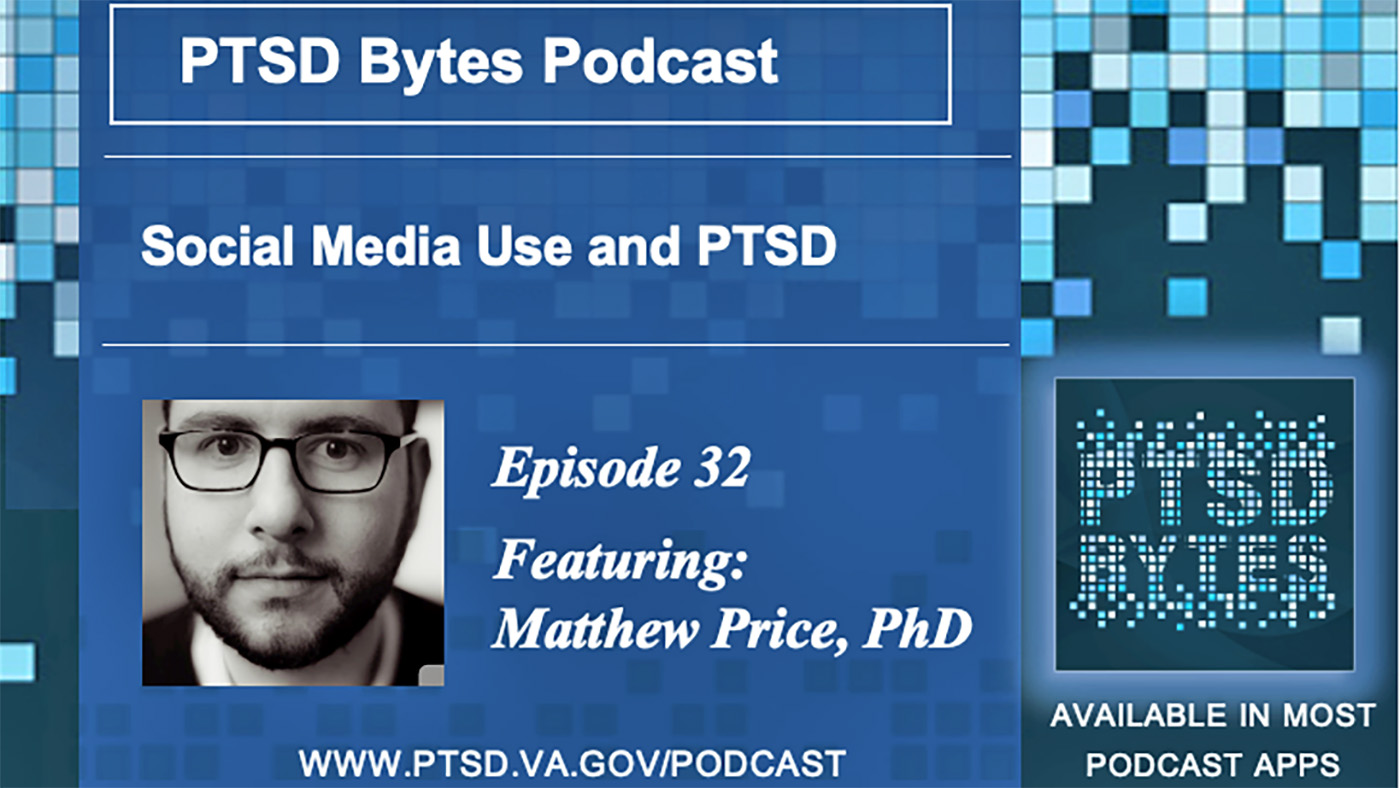In this episode of the PTSD Bytes podcast, host Dr. Colleen Becket-Davenport discusses the relationship between social media and mental health with Dr. Matthew Price, a George Albee Green and Gold professor of Psychological Science and director of the Clinical Psychology Training Program at the University of Vermont .
Social media vs. traditional news
Anyone can create the information we see on social media. Unlike traditional media that is reviewed by editors and sent out in limited amounts per day, social media is constantly updating second by second. Therefore, the term “endless scroll” is often used to describe how social media is used.
People with more severe PTSD and depression symptoms tend to spend more time on social media, playing games and web browsing. If you have PTSD, you may tend to avoid or not engage with things you perceive to be dangerous. Mobile devices, by offering a limitless amount of information, can distract you from the problems you’re dealing with at the moment.
Social media use can perpetuate PTSD symptoms because you’re not addressing the cause of your distress. New research has found that spending a lot of time on your phone, especially looking at social media, can actually increase negative feelings and anxiety. This suggests that having PTSD may make you more likely to use social media, and using social media may impact PTSD symptoms.
Doomscrolling
The term “doomscrolling” became popular during the COVID-19 pandemic. Researchers found an increase in negative emotions people felt after looking through endless social media stories. Doomscrolling may make you feel anxious or worried without offering a particular solution or helping you address some of the challenges you’re facing. Doomscrolling exposes us to a lot of emotionally charged information, and that can be especially challenging for individuals with PTSD to handle.
Treatment options and tips for healthy social media use
- Evidence-based care from a provider
- Treatment can help you address PTSD symptoms and teach you skills to manage negative emotions that may come up from doomscrolling. Helpful mobile applications like PTSD Coach, PE Coach and CPT Coach can support evidence-based treatment.
- What does “evidence-based treatment” mean?
- Managing mobile phone use
- Most mobile devices (smartphones, tablets) can track how much time you’re spending in different apps, which can help you decide if how you’re using your device is problematic. You can put time limits on when certain apps are available on your device, which can help you not turn to social media so frequently. Check your device’s settings for information on how to set app limits.
- Delete a social media application from your device. You can still access your account from other devices and are less likely to use social media as often.
It’s important to learn how to use your phone in ways that are helpful and avoid using it in ways that make you feel worse.
Additional links:
- Tips on healthy social media use for youth
- To learn about evidence-based treatments for PTSD, check out PTSD Bytes Episode #4
- Learn more about VA mental health apps
- Find mental health treatment at VA
- Find mental health treatment outside of VA
- More PTSD Bytes episodes
If you are a Veteran who is experiencing a crisis or supporting a loved one who is, call 988 and press 1 for immediate assistance, or chat online at VeteransCrisisLine.net/chat.
Topics in this story
Link Disclaimer
This page includes links to other websites outside our control and jurisdiction. VA is not responsible for the privacy practices or the content of non-VA Web sites. We encourage you to review the privacy policy or terms and conditions of those sites to fully understand what information is collected and how it is used.
More Stories
Study underscores important role COVID vaccination can have in protecting Veterans from infection and reducing long-term health consequences
Columbia VA’s robotic surgery teams completed their 800th robotic surgery and are on schedule to hit 1,000 by the end of the year.
In a decentralized clinical trial, Veterans can participate from their own homes or local VA instead of having to travel to a research site.







I retired from the USAF July 1989 been fighting for my benefits every since, VA has been denying me, stating Under Review not military connected I have given them proof of the symptons in writing I need help I am about to loose my home along with my health, I attend treatmen every 90 days with Dr. Jordan VA Dctor.
I need someone to help me PTSD getting worse, highblood pressure, on Dialysis real depressed daily.
Mr Emit Newsome
Thank you for sharing with us. We’re sorry that you have had these experiences. Unfortunately, we cannot provide care or assist with benefits at the National Center for PTSD, but we do have a couple recommendations for you. First, you can speak with the patient advocate at your VA Medical Center. They can work to address your concerns by acting as a liaison between you and your care team. Get in touch with them by calling your local VA Medical Center and asking for a patient advocate. Or you can search online using your local VA name and the term “patient advocate” – the top result should be a website with that person’s name and contact information. The hotline for VA benefits is 1-800-827-1000. Finally, there is a national VA hotline that investigates Veterans’ complaints concerning their VA health care. That number is 1 (800) 488-8244. We hope this information helps.